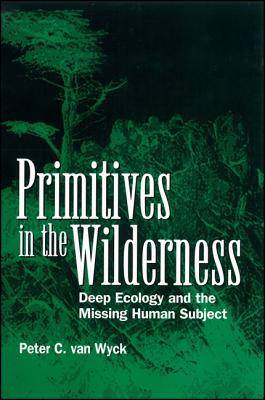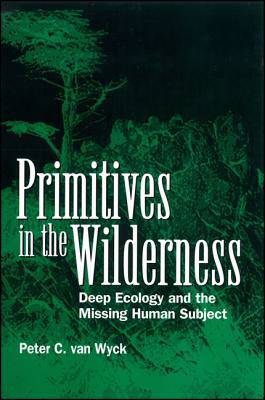
- Afhalen na 1 uur in een winkel met voorraad
- Gratis thuislevering in België vanaf € 30
- Ruim aanbod met 7 miljoen producten
- Afhalen na 1 uur in een winkel met voorraad
- Gratis thuislevering in België vanaf € 30
- Ruim aanbod met 7 miljoen producten
Primitives in the Wilderness
Deep Ecology and the Missing Human Subject
Peter C Van WyckOmschrijving
Brings the radical environmentalism known as deep ecology into an encounter with contemporary social and cultural theory, showing that deep ecology still has much to learn from such theory.
In Primitives in the Wilderness, Peter van Wyck brings the radical environmentalism known as deep ecology into an encounter with contemporary social and cultural theory. With an eye to critically exposing unexamined essentialist and foundational commitments, the author shows how deep ecology remains profoundly entangled with the very traditions of thought it has sought to overcome. The author critically assesses deep ecology's relations with the Enlightenment, modernity, systems theory, anthropocentrism, the figure of wilderness and the trope of the primitive, and the imagined promise of posthistoric primitivism. He demonstrates the manner in which deep ecology (and much of contemporary environmental thought) has remained blind to the lessons (and possibilities) of contemporary social and poststructural theory.
Drawing from an array of contemporary theoretical works (including Haraway's figure of the cyborg and situated knowledges, Deleuze's conception of an image of thought, Foucault's panopticon, Trinh on ethnographic authority, Lingis on the "Other," Torgovnick and Clastres's work on the primitive and power, and Vattimo's "weak thought"), van Wyck opens a clearing within which the ecological problematic and the question of the human subject may be rethought.
Specificaties
Betrokkenen
- Auteur(s):
- Uitgeverij:
Inhoud
- Aantal bladzijden:
- 186
- Taal:
- Engels
Eigenschappen
- Productcode (EAN):
- 9780791434338
- Verschijningsdatum:
- 31/07/1997
- Uitvoering:
- Hardcover
- Formaat:
- Genaaid
- Afmetingen:
- 152 mm x 229 mm
- Gewicht:
- 430 g

Alleen bij Standaard Boekhandel
Beoordelingen
We publiceren alleen reviews die voldoen aan de voorwaarden voor reviews. Bekijk onze voorwaarden voor reviews.











